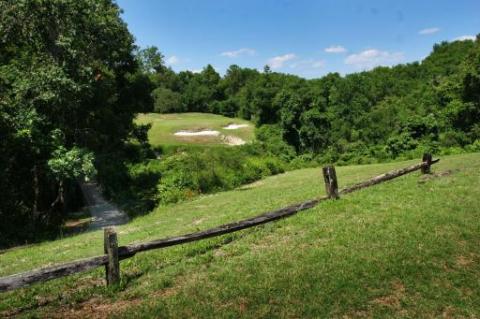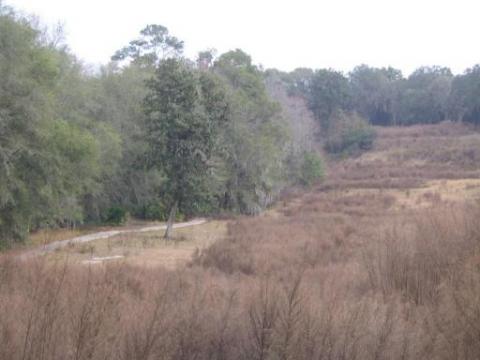Sometimes the interests of golf course owners and local governing bodies come into conflict. When that happens, it almost doesn't matter if the golf course has been praised by everyone who plays it and by top national and regional golf magazines. That is largely the story of the Ravines Club and Lodge in Middleburg, FL, about 40 minutes outside Jacksonville.
From the time it was built in 1979, the original Mark McCumber designed course had been granted 4 stars by Golf Digest, rated among Florida's best courses, and in the top 5 of courses in the northeastern section of a state crowded with excellent layouts.
Last month, the 252-acre property, including the course, a lodge and villas owned by full-time residents and
The course's closing not only left the resort's homeowners without their golf course but also with an overgrown 150 acres in the middle of their community (see before closure and after photos below). Most important of all, the resulting loss of market value for their homes puts residents in a bind, and a foul mood. Local court appearances and zoning commission meetings have been loud affairs, and the controversy has turned a few passive letter writers into serious bloggers, some railing against the owners' greed and stupidity, and others taking the zoning commissioners to task for what is seen as narrow-minded protectionism in a rural county ripe for development. It is a messy situation all around, a lose-lose-lose proposition for residents, the property's owners and the local officials.
Coldwell Banker's National Golf Sales division lists the course for sale at $2.8 million and the entire 252-acre property, including the course, villas, lodge, and the controversial 55 acres, for $6.5 million, a curiosity given that the highest bid at the auction was just $3.7 million. If no white knight appears in the next few weeks, the property is slated for a foreclosure hearing in March.
The moral of The Ravines' story is that a well-designed, highly respected golf course is not a guarantee of stability. Bad things can happen to popular courses, including bad management and intractable local zoning laws. The oncoming recession will only make golf course ownership a more financially tenuous proposition and force course owners to seek related sources of income, prime among them residential development.
If you are considering an investment in a golf course community, do much more than talk with the salespeople and play the golf course. Stories like The Ravines' should compel us to do more homework, ask more questions and consider attending a club board meeting or two. You might even want to have a look at the club's books before you purchase your home on the course. And as always, if you can afford to rent for a few months, do it before you buy. You will pick up important information no long weekend trip will ever reveal.
Note: A Ravines resident has written a compelling short history of the community and its club. You can find it at TheRavinesOnline.com


The pictures tell the sad story of the once well-regarded Ravines Golf Club. Photos by Debi Buehn for the MyClaySun newspaper.



